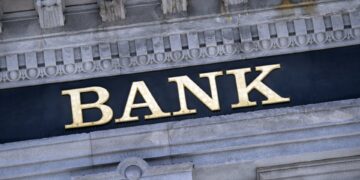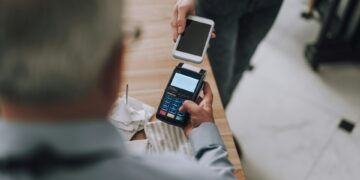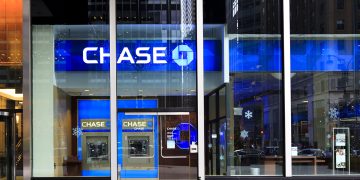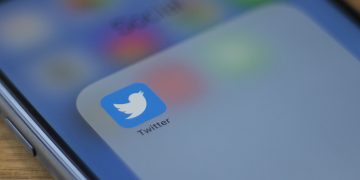STAMFORD — Leon Standly is homeless.
That makes him the perfect person to help others navigate the unique challenges that come with being homeless: how to get to medical appointments, fill out applications for food stamps, or collect the COVID-19 stimulus checks from the federal government.
For many Americans, the stimulus money was deposited directly into bank accounts back in April. But when you’re homeless, that means no home address and often no driver’s license or other identification, which means you can’t open up a bank account.
Standly, however, was not about to let that stop him from helping his friends.
“So, I was researching options for homeless people to get direct deposits and I just happened to hit on KeyBank on the internet,” Standly said.
KeyBank said it would offer a “Smart Checking” account to clients in need, a free bank account that eliminates many of the fees homeless people often incur when they instead opt for convenient but expensive prepaid cards.
“The problem with (prepaid cards) is, you get charged, here, there and everywhere,” Standly said, adding that many homeless people feel forced into using them due to their barriers in accessing a bank account.
Prepaid card holders are typically charged a monthly fee, a transaction fee, ATM withdrawal fees, a cash reloading fee, balance inquiry fees, inactivity fees, card cancellation fees, and more, according to the Consumer Financial Protection Bureau, and it puts an additional strain on an already financially struggling individual.
In Connecticut, in 2019 — the most recent data available — 8.4 percent of people were unbanked, or were not served by a bank or similar financial institution, according to the Federal Deposit Insurance Corporation.
Inspired by what he had read about KeyBank, Standly decided it was worth a visit to their location on Canal Street, conveniently less than a 10 minute walk from Pacific House, the homeless shelter for men where he lives.
Assistant Vice President Branch Manager Marta Hryniszyn told Standly a Smart Checking account would not only allow Pacific House clients and other local people in need to open a bank account for free, it would link them to banking experts who could help move them toward financial literacy and the bank would offer an additional $200 incentive if those clients agreed to have their social security benefits or their job payments directly deposited into the account.
A new partnership
Standly walked out of KeyBank last summer — after he secured his own Smart Checking account — eager to help other Pacific House clients receive the same service.
Since then, he’s helped “at least six” other homeless people sign up for the account with Hryniszyn’s assistance, a mission he said he will continue, especially as many await the next round of stimulus payments.
Those interested in signing up for a Smart Checking account must undergo a background check, provide the address of a shelter where they are staying or another address where they can receive mail, and must keep a small amount of money in the account, Hryniszyn said. Homeless individuals who live outdoors, for example, may not be eligible for the service if they cannot provide an address.
Homeless people often distrust the banking system, Standly and advocates for homeless people said. But Hryniszyn said she’s working to change that, by ensuring homeless and underprivileged people are not overlooked.
“We want all relationships, and this is what makes us a community bank, and a relationship bank where we can help everybody,” she said.
KeyBank, Wells Fargo and Liberty Bank are among the banking institutions that go “above and beyond” in their work for the community, always looking for new programming and initiatives to help expand access to banking, said Tori Hamilton, who works for the Connecticut Association for Human Services and also coordinates one of its flagship programs, Bank On Connecticut, which helps people who are “unbanked and underbanked” find safe access to affordable bank and credit union accounts.
There’s no way to measure how many banks in the state are helping homeless or financially underprivileged people, she said. It’s even hard to get data from banks on how many accounts they open per year “because of HIPAA-type rules,” Hamilton said.
“But, I can tell you that since the pandemic, more (banks) are coming on board because they recognize the need, and their branches are not overfilled with people anymore,” Hamilton said. “So, they’re looking for ways to reach people outside the normal way of traditional banking.”
Incentivizing banks
Large U.S. banks removed more than $11 billion in overdraft fees from their customers’ accounts in 2019, according to a report by the Center for Responsible Lending. Eighty-four percent of those fees were paid by only nine percent of account holders, individuals who often carried low balances and had low monthly deposits, according to Forbes.
People in the community who can least afford fees often end up paying more fees and are underbanked, said state Rep. Harry Arora, who represents Greenwich and the 151st District.
From a business perspective, banks benefit from serving and incentivizing clients who take out large loans, individuals with lots of money in savings, and those who can make big deposits into their bank accounts often, explained the former banking committee member.
“So, if you think about this demographic, somebody who is homeless, most likely, they are not going to make very large deposits and most likely they are not going to be credit-worthy to get any big loan,” he said. “So, from a bank’s perspective, that’s not the client that they’re going to seek out.”
But, Arora said, “This is something we can fix and I intend to work on.”
The lawmaker said he has asked, “not in a committee meeting but informally” in the past, for banks to publicly post every year or per quarter a metric that would show how many financially underprivileged people they’re helping to access banking services. It would drive competition among other banks and persuade them to do the same, he said.
Amid the national reckoning on racism, JPMorgan Chase pledged within the next five years to dedicate $30 billion to help provide economic opportunity to under-served communities, including helping 1 million people open bank accounts at low cost, according to the organization’s website.
Similarly, the American Bankers Association recently urged every financial institution in America to offer a Bank On Certified Account, a check-less account where it’s structurally-impossible for a person to overdraft, Hamilton said.
“I do believe it will be achieved,” the Bank On Connecticut coordinator said. “COVID for us, is a tragedy, but there’s also so much opportunity that has come, because the spotlight has shone on the LMI (low-to-moderate-income) community, that prior to the pandemic, they were already struggling, but now after the pandemic, it’s even worse. I think now is the most opportune time to discuss alternative strategies.”
A path forward
In early March, just before the COVID-19 pandemic struck Connecticut, Pacific House leaders hosted an in-house banking literacy course at their facility, led by Webster Bank employees.
The seminar focused on the importance of budgeting, saving, opening and managing a bank account, and maintaining good credit, said Rob Lockhart, director of program services at Pacific House.
Lockhart strongly advises that his clients set up their own banking accounts, outside of using prepaid cards run by financial technology companies.
The Pacific House leader said hosting the seminar was a “no-brainer.” The more information clients have about financial literacy, the easier it is for them to find housing, Lockhart said.
“And that’s really the driving process,” he continued. “We want it all to tie into moving beyond the homelessness and the shelter system, but really being independent out in the community, and having their own place to live and managing it that way.”
And that’s exactly how it played out for Kenneth “Kenny” Moss.
In late August, Moss complained to his good friend Standly about the “unnecessary” fees associated with his prepaid card.
Standly jumped at the opportunity to educate his friend and shine a light on KeyBank’s service.
“As he spoke, my interests got higher and higher,” Moss said.
Moss recently moved out of Stamford’s Pacific House Shelter and into his own apartment, where he said he feels a heightened sense of independence, security and dignity.
Asked to reflect on how his life has changed since he started using his Smart Checking account, Moss said he no longer feels limited by his prepaid card.
“I’m able to do as I please,” he said, “And more.”
[email protected] @TATIANADFLOWERS








